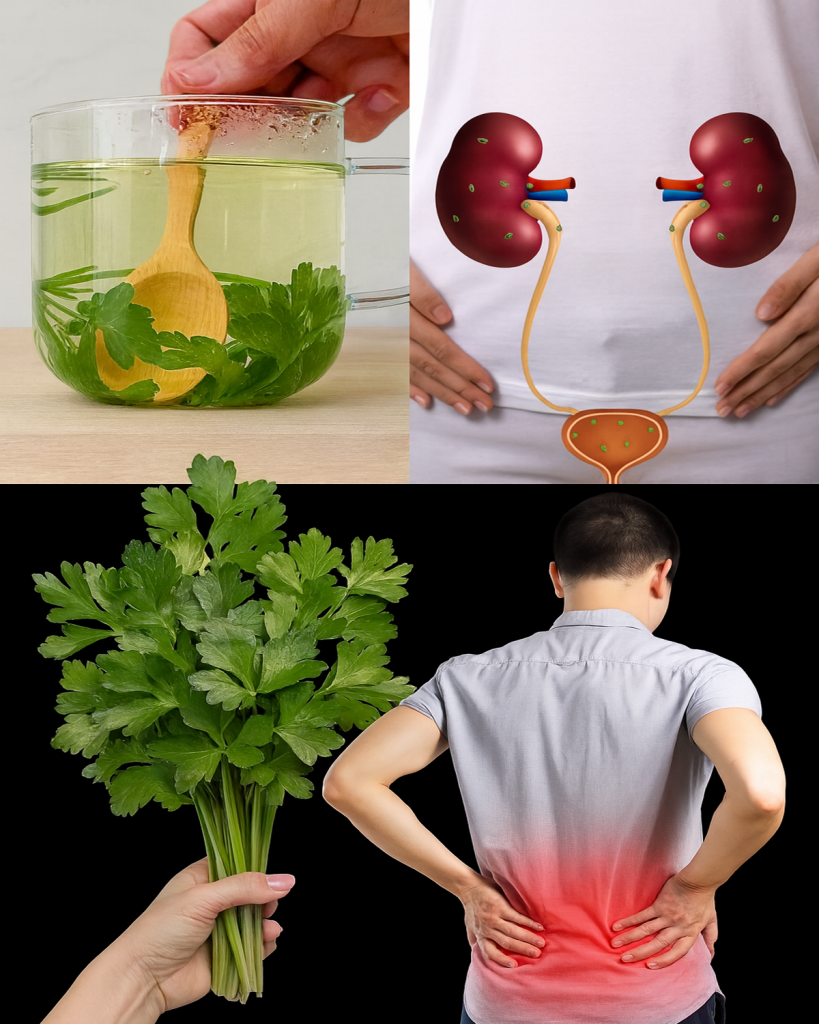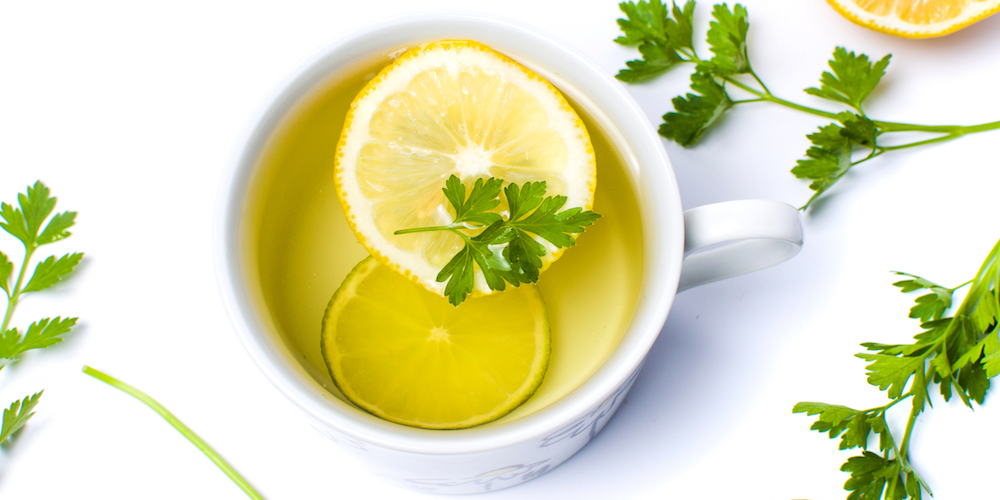Have you ever experienced that nagging discomfort in your lower back, only to discover it might be linked to your kidneys? Kidney pain and bloating are far more common than you think. In fact, it’s estimated that 1 in 7 adults in the U.S. has some level of chronic kidney disease, often without knowing it. While modern medicine provides treatment, traditional remedies have long been trusted to support kidney and blood health naturally.
One of the simplest yet most powerful remedies comes from the Amazonian healers, who relied on nothing more than herbs to help detoxify the body. Among these, parsley stands out as a humble kitchen herb with extraordinary medicinal potential. When brewed into a tea or infusion, parsley acts as a gentle diuretic, flushing out toxins, reducing bloating, and easing strain on the kidneys—all without pills or synthetic chemicals.
In this article, we’ll explore the science behind parsley’s healing reputation, its benefits for kidney health and blood cleansing, real-life stories of its effectiveness, and practical ways you can prepare it at home. By the end, you’ll see why a simple cup of parsley tea could make a profound difference in your daily wellness routine.

Why Parsley Is More Than Just a Garnish
Parsley (Petroselinum crispum) is often seen as a decorative herb on plates, but in traditional medicine it’s been valued for centuries. Ancient Greeks used it as a tonic for digestion, while Amazonian healers relied on it for blood purification and kidney support.
Key Nutrients in Parsley
- Vitamin C – Boosts immunity and supports collagen production
- Vitamin K – Essential for bone health and blood clotting
- Folate – Supports heart and brain health
- Iron – Helps prevent anemia
- Apigenin and myricetin – Flavonoids with antioxidant and anti-inflammatory effects
Together, these nutrients and plant compounds explain why parsley isn’t just food—it’s medicine.

8 Health Benefits of Parsley Tea
1. Supports Kidney Function
Parsley is a natural diuretic, increasing urine flow and helping the kidneys flush out excess salts and toxins. This can reduce water retention and ease discomfort.
2. Reduces Bloating and Water Weight
By stimulating gentle detoxification, parsley helps the body “deflate,” reducing puffiness in the face, hands, and belly.
3. Cleanses the Blood
Traditional healers used parsley to “cool and clean the blood,” and modern science confirms its antioxidant compounds protect against oxidative stress in the bloodstream.

4. Supports Heart Health
Its folate, vitamin C, and antioxidants help lower inflammation and may reduce cholesterol and blood pressure levels.
5. Aids Digestion
Parsley soothes the digestive tract, reducing indigestion and gas. Its enzymes also improve nutrient absorption.
6. Strengthens Immunity
High in vitamin C and flavonoids, parsley tea supports the immune system and helps fight infections.
7. Improves Skin Health
By cleansing the blood and reducing toxin buildup, parsley contributes to clearer, healthier-looking skin.

8. Natural Menstrual Support
Parsley tea has traditionally been used to ease menstrual cramps and regulate cycles due to its mild hormonal effects.
Quick Reference Table
| Benefit | Key Action | Best Use |
|---|---|---|
| Kidney function | Flushes toxins, increases urine flow | Daily detox |
| Bloating | Reduces water retention | After salty meals |
| Blood health | Antioxidant protection | Long-term use |
| Heart health | Lowers cholesterol & pressure | Regular use |
| Digestion | Eases bloating & gas | After meals |
| Immunity | Boosts vitamin C | Seasonal support |
| Skin health | Reduces toxins | Daily |
| Menstrual support | Relieves cramps | As needed |

How to Prepare Parsley Tea at Home
Basic Recipe
- 1 handful of fresh parsley leaves (or 2 tablespoons dried parsley)
- 2 cups of water
- Optional: 1 teaspoon honey and a squeeze of lemon
Instructions:
- Wash parsley thoroughly.
- Boil 2 cups of water, then add parsley leaves.
- Simmer for 5–7 minutes.
- Strain into a cup.
- Add honey and lemon if desired.
Drink warm, once or twice daily.

Other Ways to Use Parsley for Health
- Parsley infusion: Steep parsley overnight in cool water for a refreshing detox drink.
- Parsley-honey syrup: Mix parsley juice with raw honey for a soothing remedy against cough and fatigue.
- Culinary use: Add fresh parsley generously to soups, salads, and smoothies.
Real-Life Experiences
- A 52-year-old woman suffering from bloating and kidney discomfort began drinking parsley tea twice daily. Within a week, she noticed reduced swelling in her legs and improved energy.
- An office worker used parsley infusion as a replacement for sugary drinks. After a month, he reported less water retention, clearer skin, and improved digestion.
- A family in South America kept jars of parsley-honey syrup at home, using it to soothe coughs and colds naturally without relying on commercial syrups.
Safety and Precautions
- Parsley tea is generally safe in moderate amounts.
- Pregnant women should avoid large amounts, as parsley can stimulate uterine contractions.
- People on diuretics or blood-thinning medications should consult a doctor before daily use.
- Always wash parsley well to remove pesticides if using fresh leaves.
Conclusion
Can parsley tea cure kidney disease?
No, but it can support kidney function and reduce strain through natural detoxification.
How soon can I notice results?
Bloating relief can appear within days; long-term benefits may take weeks of consistent use.
Is it safe for daily consumption?
Yes, 1–2 cups daily is safe for most healthy adults.
Bottom line:
Parsley is more than just a garnish—it’s a natural healer used for centuries to support kidney health, cleanse the blood, and reduce bloating. A simple cup of parsley tea or a jar of parsley in honey can provide your family with an effective, affordable wellness tonic. While it should not replace medical care, it’s a powerful addition to a holistic lifestyle.
This content is for informational purposes only and does not replace professional medical advice. Always consult your healthcare provider before starting new remedies or supplements.




